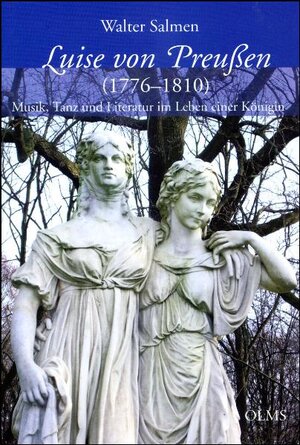
×
![Buchcover ISBN 9783487136530]()
Königin Luise von Preußen (1776–1810) ist unter den Fürstinnen ihrer Zeit ein herausragender Platz eingeräumt worden. Sie wurde bewundert von Goethe, Schiller, Heinrich von Kleist, Johann Friedrich Reichardt, Carl Friedrich Zelter und selbst von Napoleon, ihrem politischen Gegner.
In den Publikationen über ihr Leben und Wirken wurden bislang ihre Beförderungen der Künste entweder nur beiläufig betrachtet oder gar gering eingeschätzt. Da sie jedoch eine passionierte Sängerin und geübte Tänzerin war, Klavier, Gitarre und Harfe spielte, täglich mit der Literatur ihrer Zeit sich vertraut machte und am Konzert- sowie Theaterleben rege teilnahm, wird in diesem Buch erstmals anhand von Tagebüchern, Briefen und anderen Quellen ihr Können und Engagement detaillierter erschlossen. Sie vermochte es während der Jahre 1793 bis 1810 den Hof der Hohenzollern zu öffnen für das Sololied und den Chorgesang, für bürgerliche Tänze (z. B. den Walzer) und die Literatur der Weimarer Klassiker.
Queen Luise of Prussia (1776-1810) occupies a prominent position among the royal women of her day. She was admired by Goethe, Schiller, Heinrich von Kleist, Johann Friedrich Reichardt, Carl Friedrich Zelter, and even by Napoleon, her political opponent. Previous books about her life and work have given only cursory attention to her encouragement of the arts or have very much underestimated it. However, she was a passionate singer and practised dancer, played the piano, guitar and harp, kept in daily touch with the literature of the day and was an enthusiast for the theatre and concerts. For the first time this book uses diaries, letters and other original sources to reveal in detail the extent of her abilities and interest. Between 1793 and 1810 she opened the Hohenzollern court to solo and choral singing, to bourgeois dances (e. g. the waltz) and to the literature of Weimar classicism.
Queen Luise of Prussia (1776-1810) occupies a prominent position among the royal women of her day. She was admired by Goethe, Schiller, Heinrich von Kleist, Johann Friedrich Reichardt, Carl Friedrich Zelter, and even by Napoleon, her political opponent. Previous books about her life and work have given only cursory attention to her encouragement of the arts or have very much underestimated it. However, she was a passionate singer and practised dancer, played the piano, guitar and harp, kept in daily touch with the literature of the day and was an enthusiast for the theatre and concerts. For the first time this book uses diaries, letters and other original sources to reveal in detail the extent of her abilities and interest. Between 1793 and 1810 she opened the Hohenzollern court to solo and choral singing, to bourgeois dances (e. g. the waltz) and to the literature of Weimar classicism.


